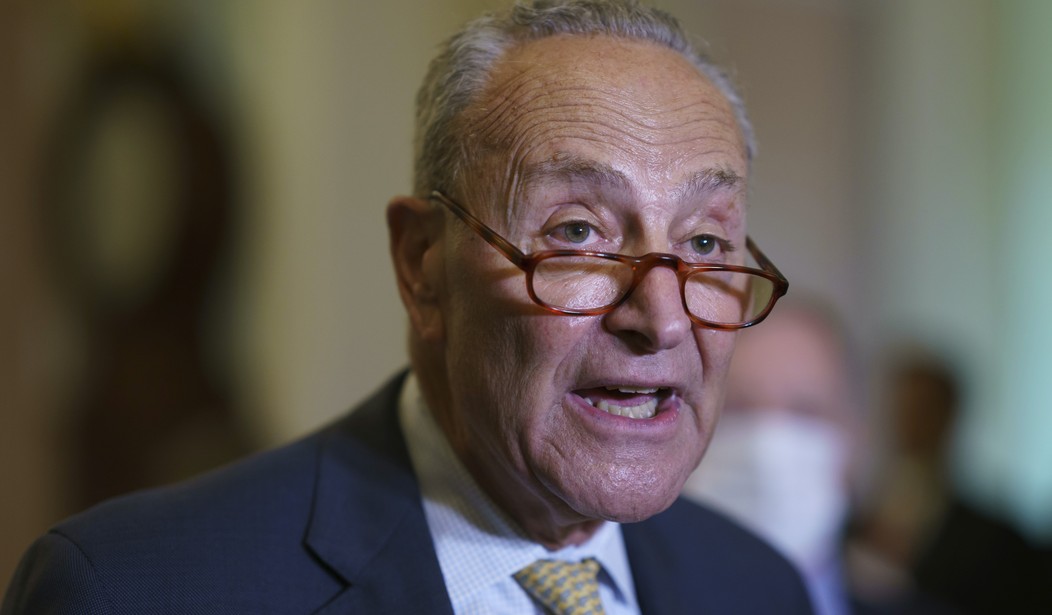Senate Majority Leader Chuck Schumer announced the Senate will vote Wednesday on the “consequential” Freedom to Vote Act.
In a message on Twitter, the New York Democrat said the bill “would establish commonsense standards for our democracy and help fight suppressive voting laws.”
The revised voting measure has united Democrats, but Republicans remain opposed.
The Freedom to Vote Act, which was introduced last month, is the product of months of negotiations between senators including Rules Committee Chairwoman Amy Klobuchar (D., Minn.) and Sen. Joe Manchin (D., W.Va.) The sweeping measure would require at least 15 consecutive days of early voting in every state, mandate same-day registration at all polling sites by 2024, and make permanent the mail-in voting that was introduced in 2020 when the Covid-19 pandemic struck, among other measures. (WSJ)
Reacting to efforts by states like Texas and Georgia, which have enacted voting laws that strengthen the integrity of elections, Schumer argued they “cannot allow conservative-controlled states to double down on their regressive and subversive voting bills.”
The Wednesday vote would be on overcoming a procedural hurdle that requires 60 votes for clearance. In the 50-50 Senate, Democrats would need at least 10 Republicans to join them in order to move to a simple-majority vote.
The Freedom to Vote Act is slightly narrower than the version that passed the House. For example, it stripped out a provision that would allow candidates for Congress to opt into a system providing a matching grant of $6 for every dollar they raise of $200 or less from a single donor. Instead, states would have the option of using money from a state administration fund to establish an optional six-to-one matching program for House candidates only. (WSJ)
Recommended
While the bill is revised, Senate Minority Leader Mitch McConnell said it’s still a federal takeover of elections.
“The latest version is only a compromise in the sense that the center left compromised with the far left,” he said after the measure was first introduced. “It still makes Washington bureaucrats the de facto board of elections for all 50 states.”

























Join the conversation as a VIP Member